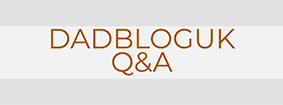What’s been going on in family homes during lockdown? Are we really seeing stereotypical gender roles break down or they becoming more polarised? It’s a fascinating area of research and Dr Jasmine Kelland of the University of Plymouth is at the forefront of finding out what’s been going on.

Dr Kelland, along with other academics, has been researching the impact of widespread homeworking. The initial findings made headlines because they suggested that the instant introduction of flexible working had eroded traditional gender stereotypes. Parents were enjoying more time with their children, families were eating more healthily and both mothers and fathers were reporting a better work / life balance.
It’s a fascinating area of research, the results of which will be eagerly awaited by anyone with an interest in flexible and remote working. it also builds on Dr Kelland’s previous high-profile research which established what she called the ‘fatherhood forfeit,’ for men wanting to balance caregiving with a career (alongside the ‘motherhood penalty’) which you can also read about below.
It was a real pleasure to learn more about Dr Kelland’s work. I hope you find it as thought provoking as I did.
During the early days of the COVID-19 crisis, you did a survey with working parents and it produced some interesting results, including the suggestion that many might want to work from home more in future. What were the other key findings?
Naturally, the lockdown has resulted in more family time and parents in the survey reported feeling more connected to their children as they were able to achieve a better work-life balance. Both mothers and fathers reported that they were enjoying the reduced travel to and from work and more opportunities for exercise with their children. Parents also said that they were enjoying being more involved in their children’s education. Use of technology was also mentioned in the survey, with regard to parents feeling more confident with the use of technology for work and that it was enabling wider home working.
We have followed up the survey with interview and in the interviews use of technology also appeared as a key theme, however, in a slightly different way with many parents reporting that technology was a key tool for occupying their children whilst they were working and parents identified many perils that came with this. It will be interesting to see how this develops in the analysis.
You are following up this research to see if parents’ wishes to work more flexibly become reality. When might we hear more about this?
I am just finishing off the interviews now. I am also working with co-researchers at University of Liverpool to collect further data through use of diary studies, to try to understand in detail the daily challenges, benefits and decision making practices of parents during this time. Hoping for some early findings towards the end of the summer.
The survey also suggested mothers felt increased levels of guilt because they were trying to homeschool, run the household and (often) work from home also. Did men not report feeling guilty also?
Interestingly, not as much as the mothers, this was a strong theme in the interviews as well. Guilt was a word often used by mothers, rarely fathers. My personal view is that this is linked to societal perceptions of how fathers (and mothers) are conceptualised, motherhood guilt is a well-known phrase that is widely used, working father guilt not quite so much, despite it no doubt existing. For example when you type ‘working father guilt’ into Google, it defaults to ‘working mother guilt’!
This also links to societal expectations of what it is, and isn’t, acceptable for fathers to act or to say , I am not saying this is correct, but it is underpinned by generations of societal pressure for fathers to behave in a certain way, often aligning to outdated breadwinner mentalities.
One surprising finding was that parents (in particular mums) were enjoying eating home cooked meals with their families. Once or twice, in the early stages of lockdown, mine were served fresh fruit followed up by a main course of super noodles. This must surely make me a failure, right?
Ha, I thought this was surprising too, in the interviews wider home cooking and more healthy family meals has been mentioned by both parent and was less exclusive to mothers. It is always interesting what comes out of these sorts of surveys which is why we do the interviews to follow up and to flesh out some of the findings a little…and super noodles can only ever be linked to success in my eyes.
Swiftly moving on, what, in your experience are the main differences experienced by mums and dads in the workplace?
There is a lot of existing research which indicates that fathers often obtain less workplace support than mothers. Whilst most organisations have policies in place to assist employees to manage their work and home life (such as flexible working and part-time working) which are invariably for all staff and normally underpinned by legislation, but often such policies are primarily associated with mothers. Children are often considered to be a women’s issue and flexible working arrangements that facilitate active involvement are often not linked to fathers.
Much research has found that fathers face a number of specific challenges when accessing policies that will assist them with caregiving behaviour in the workplace. For example, mothers have been found to be three times more likely to ask for flexibility in working arrangements than fathers and fathers have been found to have less access than mothers to flexible working arrangements with requests being more likely to be rejected. Often workplace support for caregiving behaviour can be constructed as a potential favour, a maternal privilege that mothers in the workplace receive, a favour which is not afforded to fathers, essentially, a consequence of negotiation, and in this negotiation, fathers have less power than mothers
My own research has explored this issue and I observed a distinct ‘fatherhood forfeit’ which I will explain a little later
Following on from the above, do you know what the experience is of same sex couples? If there is no mum / dad, who experiences the forfeit?
I have tended to not have many same sex couples come forward in the samples for any of my research projects. I have done a few interviews with parents in same sex couples but would be keen to explore the experiences of such families in more detail.
I’m a Generation X male and I left the workforce because I couldn’t balance work and family life. Research suggests younger men are more likely to behave this way. Do employers need to wake up to this?
In short, yes. Researchers in this area have proposed that millennials, Generation Y and Z, are considered as the ‘entitlement generation’, who wholeheartedly expect to have a work-life balance whilst in employment. Naturally, if they are unable to find this within current employment they might leave and go elsewhere which places a responsibility of employers to resolve this issue if they are to maximise their talent. Looking to the future, I suspect that millennials will have a key part to play in driving this change within their organisations as they become more senior in their workplaces.
If employers don’t accept this societal shift, they’ll find it hard to retain both female and male talent, surely?
Yes, 100% and in my view this is only going to become more of an issue, not just for parents either.
Research you carried out a few years ago discovered something you dubbed the ‘fatherhood forfeit.’ Can you please explain what that is?
I found that fathers face a number of forfeits when they strive to be involved in the caregiving of their children. Firstly, I found that when parents of both genders applied for a part-time role, the father was judged as less competent, having lower workplace commitment and hireability than the mother. Thus, they were less likely to obtain a role that would allow the combination of work and caregiving.
Secondly, I found that fathers who wished to alter working patterns to allow for the caregiving of their children faced numerous more general forfeits. Such as being viewed with suspicion, mocked, viewed as idle and struggled to establish friendships, often feeling isolated.
When it comes to fathers, I always feel there is huge focus on their needs when they become dads, but little recognition that it’s a lifelong commitment. What could employers do to make the workplace more dad friendly for those men with older children?
I think there is a huge role for employers in seeing the whole person if they want to get the best out of their employees, whether that is when they have younger children, older children, relatives to care for or just love golf and it really makes them happy. Happy workers work harder!
As you have yourself said, before COVID-19, traditional gender roles within the family were changing. Dads are generally more hands on, an increasing number of women out-earn their partners, there is wider acceptance of same sex couples etc. Do you think the impact of COVID-19 will accelerate these changes or is there a risk we could move backwards?
The research regarding this is quite mixed, many researchers have observed that the pandemic has brought traditional gender roles back in force, I am less convinced about this. The Parents in the Pandemic project I am currently working on, although analysis is in the early stages, indicates that the pandemic seems to have eroded many of the fatherhood forfeits and motherhood penalties that previously faced parents when combining work and caregiving. Either way I think it is important that post pandemic the momentum regarding flexible working is maintained and I think this requires government intervention and wider reporting and transparency with regard to flexibility.
I note you have said some interesting things in the past about attitudes of managers having a big impact on how family friendly a workplace can be. Is this something employers have not quite got right yet? Is there a need for greater diversity and awareness training in the workplace?
In my view there are numerous actions that could be taken within workplaces to make organisations more family friendly.
-Organisational reviews of current policies to address social exchanges within workplaces regarding on caregiving, there seems to be an underestimation of the potential impact of what can be constructed as ‘small talk’
– Wider training that specifically explores the potential biases enacted towards fathers, both conscious and unconscious. Educating managers and employees on this matter could both increase awareness of the importance of gender neutrality and highlight the potential risks of gender bias, thus maximising the chances of successful implementation of any policies.
– Encouraging cultural change within organisations through active role modelling and also championing of fathers in the workplace, this practice is essential to the successful introduction of organisational work-family balance policies.
Finally, on a policy level, I think there is scope for a change to the Equality Act to make ‘Parental Status’ a protected characteristic and room for stronger regulation regarding flexible working, which could include all jobs being flexible as a default.
Looking to the future, what do you think the world of work will look like for our children?
I really hope they will have the option to work the hours that they need and want to without some of the challenges faced by the current generation of parents. In my view we have come so far, but increasing the acceptability of, and providing more support for fathers in caregiving roles is the key to further equality in the workplace for both mothers and fathers.
If employers could do three things to improve productivity and make the workplace more family friendly, what would those three things be in your opinion?
Encourage people to feel that they can bring themselves to work- be honest about the challenges they face so that the employer can help them overcome and in return obtain loyal and hardworking staff. Lockdown has made this easier I think and I hope this will continue.
Celebrate the diversity that outside experiences bring to the workplace- with regard to parenting, acknowledging that sending a gift basket when a member of the team has a baby is not enough!
As I mentioned before- flexibility as the default working arrangement is key. Does working 9-5 in an office, half an hour from home work for anyone anymore?
Find out more
Dr Jasmine Kelland is a Lecturer in Human Resource Management and Programme Leader of the Masters in Human Resource Management at the University of Plymouth. You can find out more about Dr Kelland’s work by following this link.








1 thought on “Dr Jasmine kelland discusses Parents in the Pandemic”
Great content as always. I like the idea of using listicle posts on social media. Even I used this few times and it has always worked great for me.. your articles are very good, thanks